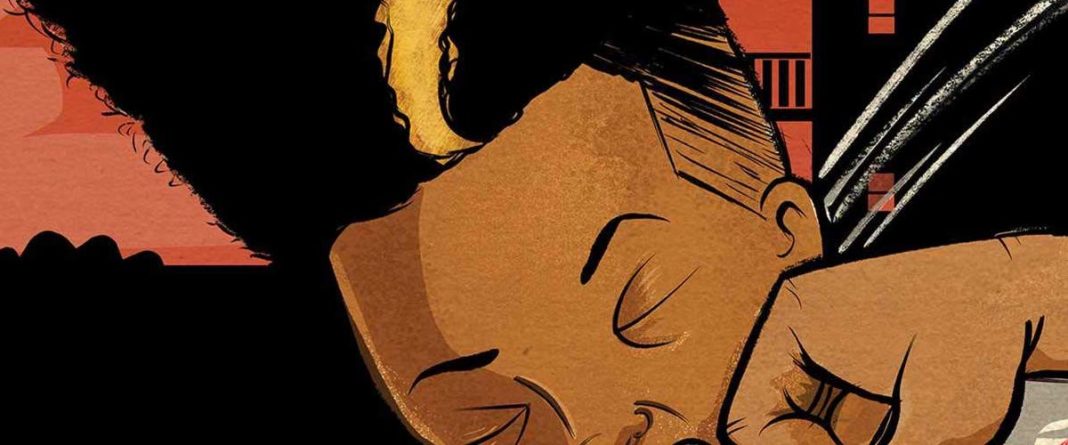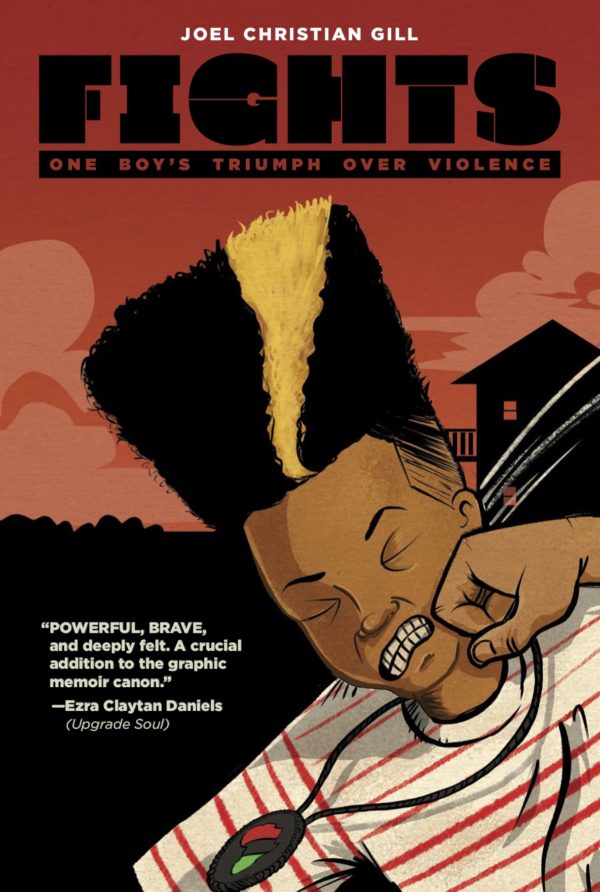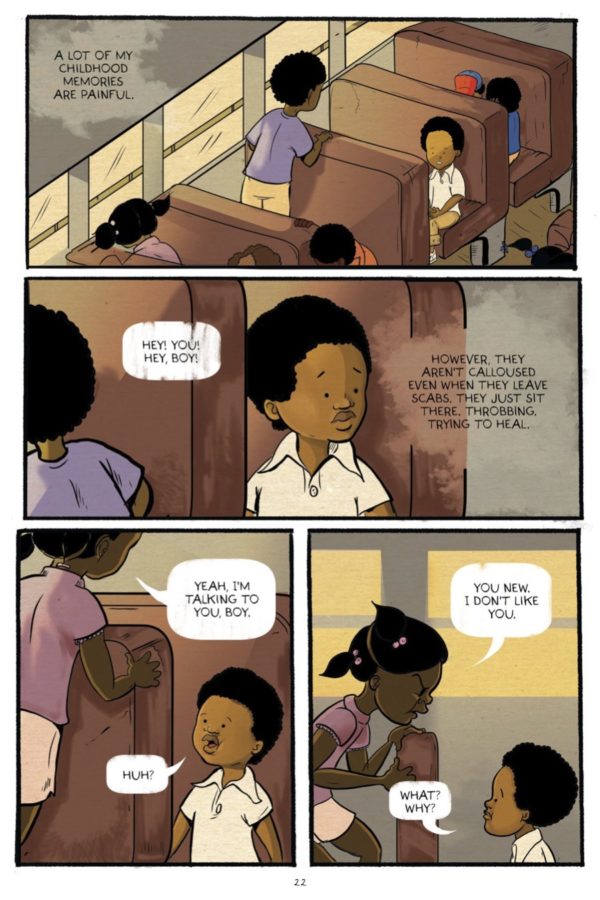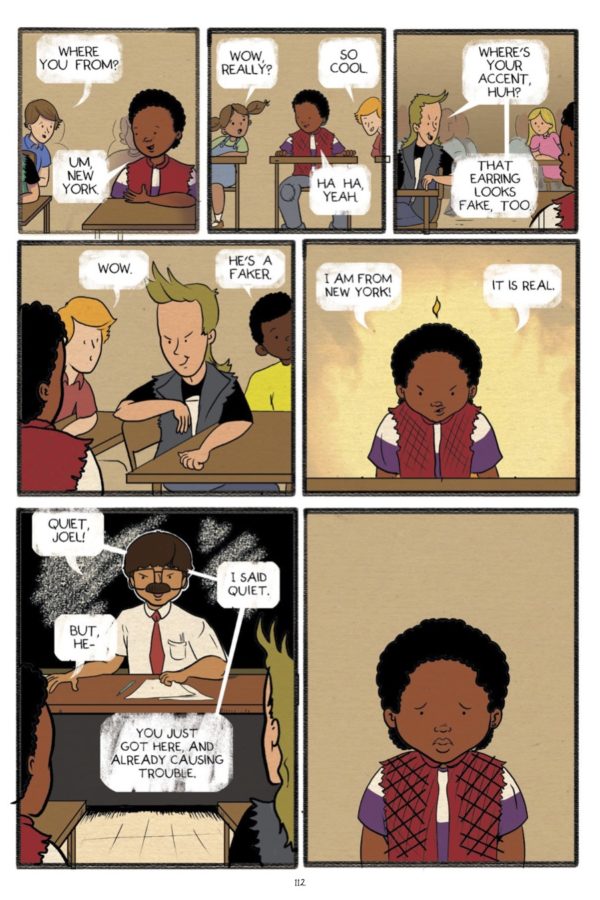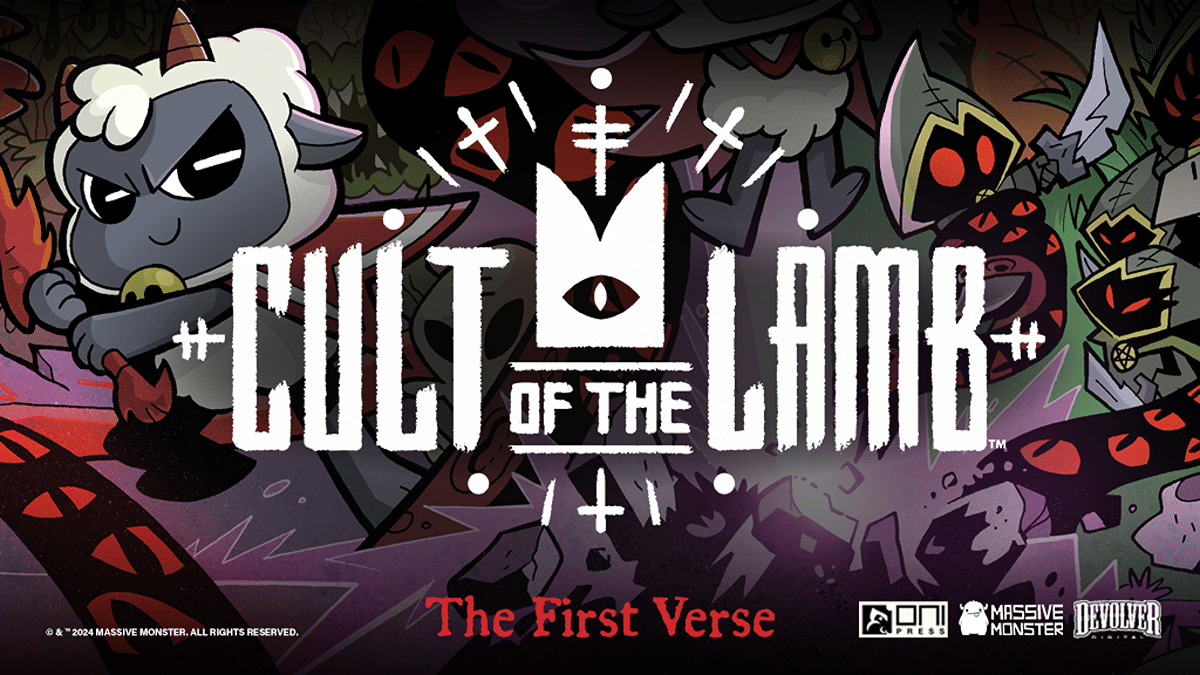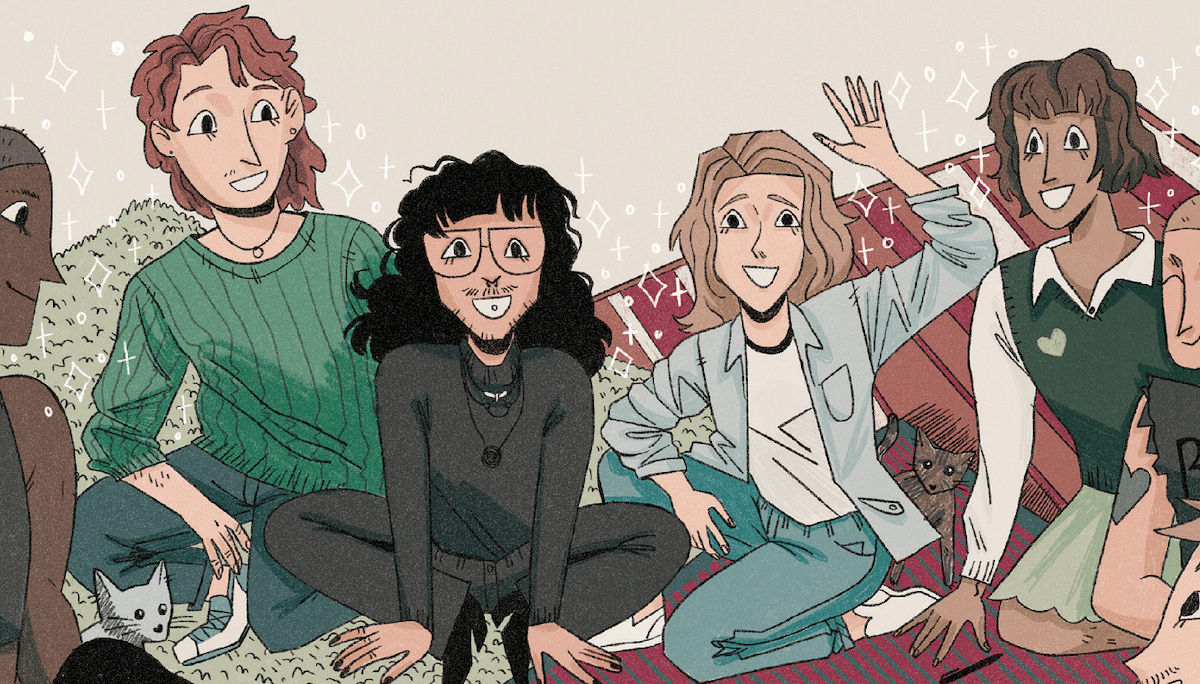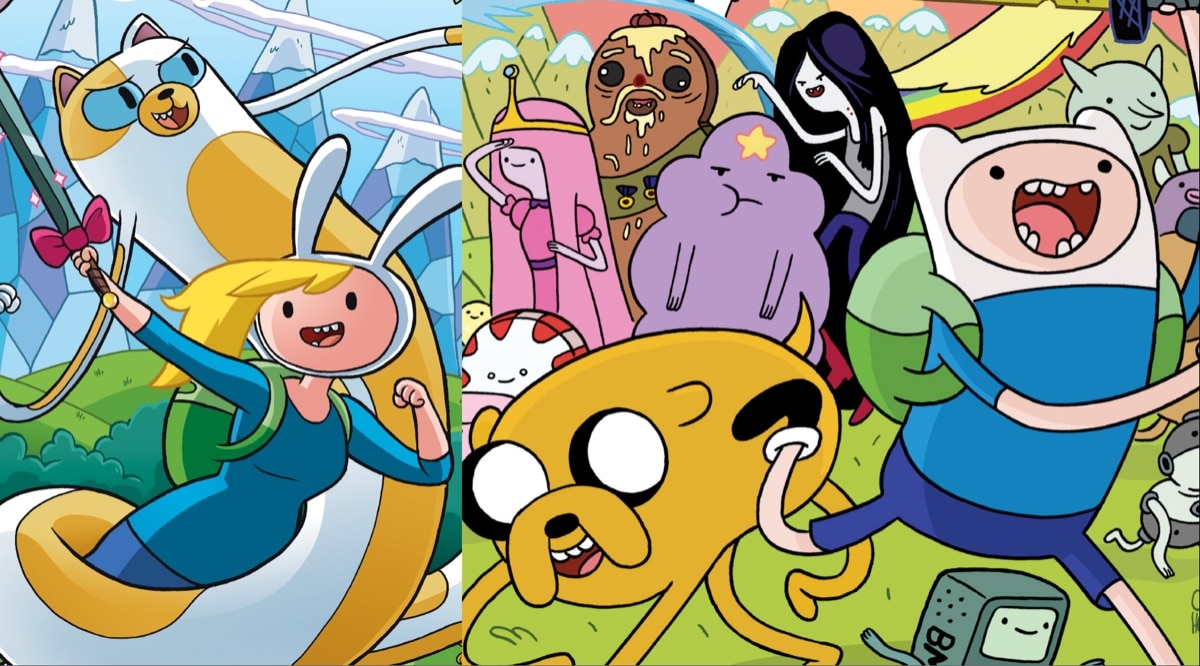Fights: One Boy’s Triumph Over Violence
By Joel Christian Gill
Oni Press
Reading Fights: One Boys Triumph Over Violence hurt, I’ll just start with that. It hurt a lot and that’s the briefest testament I can give to its subtle power. While you’re reading it, you don’t necessarily feel that hurt. Maybe you become a little numb to it because of the relentlessness of the circumstances portrayed. You may not connect what unfolds with a much larger world filled with other kids like Joel Christian Gill who are going through their own versions of the same, partly because you’re concentrating on his story and partly because the wider picture can be too much to bear. And Gill’s delivery of this autobiographical story never grinds the hurt into you as it unfolds. Gill is amiable, sometimes breezy, and it can feel like he’s trying to spare you the hurt.
But Fights will get you in the end.
Gill is well-known and deservedly acclaimed for works like his Strange Fruit series, which delves into black history to celebrate lesser-known stories within it, and Tales of the Talented Tenth, which expanded on a couple of those stories. He’s done admirably in telling stories of Black America, but with Fights, he looks inward to tell another story, obviously a personal one but also one that I suspect he pursued because of the implications of it go far beyond his own experience.
Fights opens in the present day, with Gill, now a dad, concerned with how his own son’s experience in life might mirror his own as he also tries to resolve some hostility exploding at his workplace. His son mentions a fight that unfolded during the school day but shrugs it off. For Gill, though, it’s like a trigger that sends his brain spiraling into the past and working through the story of his first bully, a girl named Key Key in early elementary school who, for no reason, threatens to beat him up after school.
We already know that Gill hasn’t got the best home life. His mom has just gotten out of jail and she’s pulling her life together, dropping him off for days into abusive situations while she arranges work and a place to live. Gill loves a lot of things about school, but the constant harassment there and the cruel judgment of teachers keep him apart from the school work that matches his ability.
When he does move in with his mother, he faces a parade of strangers and further abuse. At school, bullying continues, now peppered with racism, and within that culture, Gill learns the only way to survive is to fight back. And as with so many victims of bullying, what starts out as defensive evolves into offensive efforts in order to assert his place in the pecking order.
This is pretty much Gill’s life until his early teen years when he and his mother move to a city where Gill becomes enveloped by the misogynistic urban teen culture where force and aggression become indicators of status and girls become property that fuels violence between the posturing males. Gill attempts to create bonds with others, have friends, seize something normal for himself, but the culture is so invasive that it constantly works to infect these efforts and sometimes succeeds in transforming former friends into raging factions against each other.
By the time the book ends, Gill has managed to offer a multi-faceted narrative that strands together hope and hopelessness as dual threads in life where through a combination of ability, circumstance, and sometimes pure luck a person grasps either thread at different times in the attempt to slide along the thread of hope by the time you’ve committed to a track.
I think what made Fights so hard was not just the story itself and the implications of it, but the presentation of Gill’s art in the context of the story. He does not alter his style to something darker or more mature for this subject matter but instead renders everything in the same clear and friendly style of any of his other books, a style that bursts with a kid-friendly quality. Because of that, Fights doesn’t feel like a story being told by a grown-up looking back, but a kid living it. That’s the power within it, it hasn’t lost track of the kid that the story is about.
These aren’t past events but living ones, and while they may not exactly slice away at Gill’s soul anymore, they still lurk in there and it’s obviously an ongoing process for him to contend with these memories. Your past may not destroy you anymore, or even disarm you much, but that doesn’t mean it’s completely gone from you. Sometimes, at least, you can maneuver the events into something constructive and that’s exactly what Gill has achieved here.
Disclosure: The Beat is owned by Polarity, which also owns Oni Press.


